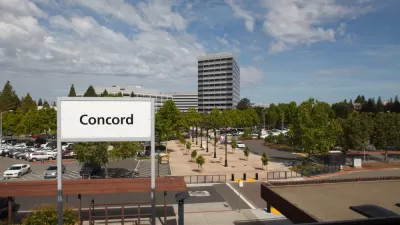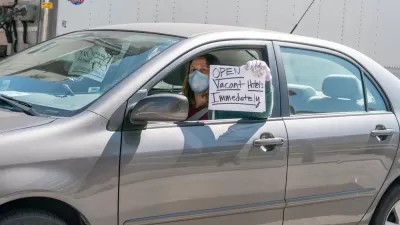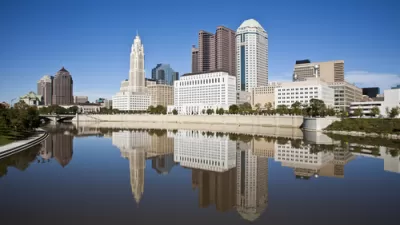With the convention industry still hobbled by the effects of the recession, and a glut of convention space across America hungering for events, cities are going to extreme lengths to attract the expected injections to their local economies.
With convention-center exhibit-hall space having expanded by 35% nationally over the past decade, and attendance having declined over the same period, the competition to fill America's vast convention centers has gotten intense, report Jennifer Levitz and Cameron McWhirter, who document how some cities are working to beat the competition.
"City convention bureaus are undercutting each other with offers of
freebies and incentives, such as free banners, breaks on rent and
donations to a trade organization's charity....Some convention centers have added casinos or theaters. In Nevada,
the Reno-Sparks Convention and & Visitors Authority is aiming to
lure bowling conventions with its sprawling bowling alley only open to
convention-goers. 'We have the Taj Mahal of bowling,' said Christopher
Baum, the authority's president."
Heywood Sanders, a professor of public administration at the University of Texas at San Antonio, "predicts the glut of
convention space will only get worse, because a number of cities
continue to push expansions," say Levitz and McWhirter. "He blames cities' hired consultants, who he
said predict 'all these people are going to come and do wonderful
things to your economy.'"
"But the problem is they aren't coming anymore, because there are
lots of other convention centers ... that desperately want that
business," he said. "So Atlanta steals from Boston, Orlando steals from
Chicago and Las Vegas steals from everywhere."
FULL STORY: Cities Clash in Battle to Land Conventions

Planetizen Federal Action Tracker
A weekly monitor of how Trump’s orders and actions are impacting planners and planning in America.

Map: Where Senate Republicans Want to Sell Your Public Lands
For public land advocates, the Senate Republicans’ proposal to sell millions of acres of public land in the West is “the biggest fight of their careers.”

Restaurant Patios Were a Pandemic Win — Why Were They so Hard to Keep?
Social distancing requirements and changes in travel patterns prompted cities to pilot new uses for street and sidewalk space. Then it got complicated.

Platform Pilsner: Vancouver Transit Agency Releases... a Beer?
TransLink will receive a portion of every sale of the four-pack.

Toronto Weighs Cheaper Transit, Parking Hikes for Major Events
Special event rates would take effect during large festivals, sports games and concerts to ‘discourage driving, manage congestion and free up space for transit.”

Berlin to Consider Car-Free Zone Larger Than Manhattan
The area bound by the 22-mile Ringbahn would still allow 12 uses of a private automobile per year per person, and several other exemptions.
Urban Design for Planners 1: Software Tools
This six-course series explores essential urban design concepts using open source software and equips planners with the tools they need to participate fully in the urban design process.
Planning for Universal Design
Learn the tools for implementing Universal Design in planning regulations.
Heyer Gruel & Associates PA
JM Goldson LLC
Custer County Colorado
City of Camden Redevelopment Agency
City of Astoria
Transportation Research & Education Center (TREC) at Portland State University
Camden Redevelopment Agency
City of Claremont
Municipality of Princeton (NJ)





























